Related Research Articles
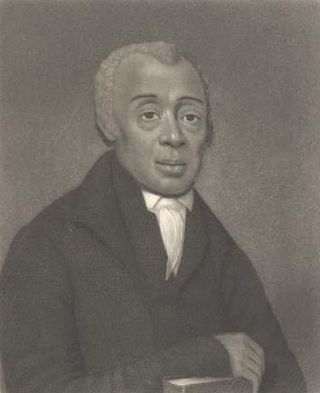
Richard Allen was a minister, educator, writer, and one of the United States' most active and influential black leaders. In 1794, he founded the African Methodist Episcopal Church (AME), the first independent Black denomination in the United States. He opened his first AME church in 1794 in Philadelphia.
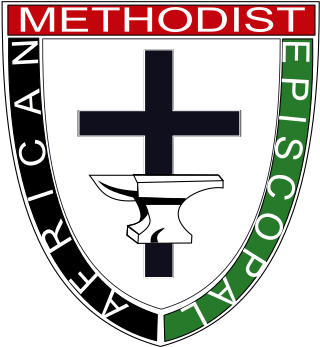
The African Methodist Episcopal Church, usually called the AME Church or AME, is a Methodist Black church. It adheres to Wesleyan-Arminian theology and has a connexional polity. The African Methodist Episcopal Church is the first independent Protestant denomination to be founded by black people; though it welcomes and has members of all ethnicities.
The Church of God, Mountain Assembly (CGMA) is a holiness Pentecostal Christian body formed in 1907, with roots in the late 19th-century American holiness movement and early 20th-century Pentecostal revival. The denomination maintains headquarters in Jellico, Tennessee and is a member of the Pentecostal/Charismatic Churches of North America.

William McKendree was an Evangelist and the fourth Bishop of the Methodist Episcopal Church, and the first Methodist bishop born in the United States. He was elected in 1808.
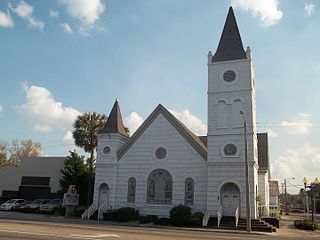
The black church is the faith and body of Christian denominations and congregations in the United States that minister predominantly to African Americans, as well as their collective traditions and members. The term "black church" can also refer to individual congregations.
Marshall Keeble was an African American preacher of the church of Christ, whose successful career notably bridged a racial divide in an important American religious movement prior to the Civil Rights Movement. Over the course of his 50-year career as a gospel preacher, he was credited with starting almost every African-American church of Christ in the state of Tennessee. Keeble enjoyed an almost unrivaled position as an African-American subject of hagiographical biography by white contemporaries within the church of which Keeble was a member. A notable example of this is Roll Jordan Roll by fellow minister and longtime Keeble associate, J. E. Choate.
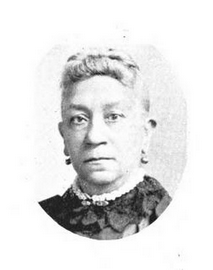
Sarah Jane Woodson Early, born Sarah Jane Woodson, was an American educator, black nationalist, temperance activist and author. A graduate of Oberlin College, where she majored in classics, she was hired at Wilberforce University in 1858 as the first black woman college instructor, and also the first black American to teach at a historically black college or university (HBCU).

Daniel Alexander Payne was an American bishop, educator, college administrator and author. A major shaper of the African Methodist Episcopal Church (AME), Payne stressed education and preparation of ministers and introduced more order in the church, becoming its sixth bishop and serving for more than four decades (1852–1893) as well as becoming one of the founders of Wilberforce University in Ohio in 1856. In 1863, the AME Church bought the college and chose Payne to lead it; he became the first African-American president of a college in the United States and served in that position until 1877.

Liberty Universalist Church and Feasterville Academy Historic District is a national historic district located near Winnsboro, Fairfield County, South Carolina. The property encompasses four buildings constructed between 1831 and 1845. They are the Liberty Universalist Church and three buildings associated with the Academy: a boarding house, a kitchen, and a school building. The buildings were constructed by the Feaster family.

Jordan Winston Early was an American Methodist preacher, he is considered to have been one of the pioneers of African American Methodism spread in the West and South of the United States. In 1868, he married Sarah Jane Woodson Early, and the couple were prominent in spreading Methodism and black nationalism, and his wife taught wherever he preached.

The history of Methodism in the United States dates back to the mid-18th century with the ministries of early Methodist preachers such as Laurence Coughlan and Robert Strawbridge. Following the American Revolution most of the Anglican clergy who had been in America came back to England. John Wesley, the founder of Methodism, sent Thomas Coke to America where he and Francis Asbury founded the Methodist Episcopal Church, which was to later establish itself as the largest denomination in America during the 19th century.
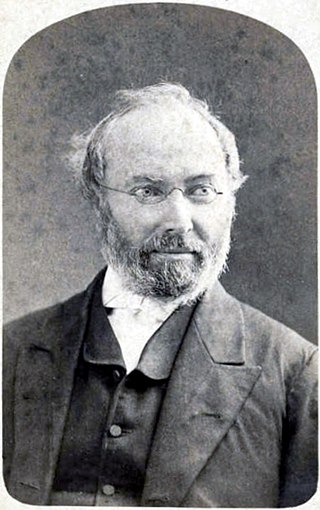
Thomas OsmondSummers was an English-born American Methodist theologian, clergyman, hymnist, editor, liturgist and university professor. He is considered one of the most prominent Methodist theologians of the nineteenth century.
The Revival of 1800, also known as the Red River Revival, was a series of evangelical Christian meetings which began in Logan County, Kentucky. These ignited the subsequent events and influenced several of the leaders of the Second Great Awakening. The events represented a transition from British traditions to innovations arising from the unique needs and culture of Americans in the new century, especially on the frontier. The startling manifestations of revival fervor that first occurred in June 1800 at the Red River Meeting House, a small Presbyterian congregation led by James McGready, began as a Scottish sacrament service, but led to the important innovation of serial religious services later known as camp meetings.
The Tennessee Conference is an Annual Conference of the United Methodist Church. This conference serves the congregations in Middle Tennessee. The Tennessee Conference falls within the Nashville Episcopal Area which also includes the Memphis Conference. The Tennessee Conference is part of the Southeastern Jurisdictional Conference, and is over seen by resident Bishop Reverend Bill McAllily. Bishop McAlilly was elected to this post in 2012. The episcopal office is located in downtown Nashville at 1908 Grand Avenue, Nashville, TN 37212.
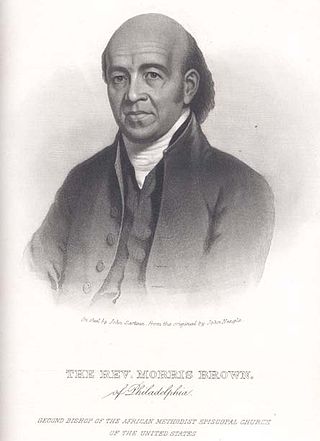
Morris Brown was one of the founders of the African Methodist Episcopal Church, and its second presiding bishop. He founded Emanuel AME Church in his native Charleston, South Carolina. It was implicated in the slave uprising planned by Denmark Vesey, also of this church, and after that was suppressed, Brown was imprisoned for nearly a year. He was never convicted of a crime.
Robert A. Young (1824–1902) was an American minister of the Methodist Episcopal Church, South. A descendant of slaveholding planters, he served as a minister in many churches in Tennessee, Alabama and Missouri in the Antebellum South. He served as the President of Florence Wesleyan University (later known as the University of North Alabama in Florence, Alabama from 1861 to 1864. He supported the Confederate States of America during the American Civil War, and he did not believe in the "social equality of the Negro" after the war. He was a founding trustee of Vanderbilt University in Nashville, Tennessee.

Thomas Wilkie (1645-1711) was a Scottish minister who was elected Moderator of the Church of Scotland twice: once in 1701 and once in 1704. He was the minister at the Kirk of the Canongate.
Thomas John Jackson was an African-American former slave from Frederick County, Maryland, United States, who emigrated to Cape Palmas in the 19th century. Thomas Jackson was one of the most prominent early Americo-Liberian and was among the early American settlers of Liberia. Thomas Jackson is mentioned in the African Repository by the American Colonization Society and the Maryland State Colonization Society.
James MacKnight (1721-1800) was a Scottish minister and theological author, serving at the Old Kirk of Edinburgh. He is remembered for his book Harmony of the Gospels and as Moderator of the General Assembly of the Church of Scotland in 1769.
References
All information from Church Records, Family Records, and Local Public Records of Giles County TN.